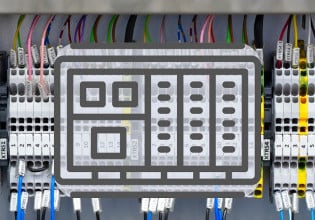D
Hello;
We have GT which is frame 5 and MARK Vie TMR controlled. Recently during the unit started up after the unit reached speed of 80 %, we observed that the 63FGL pick up to 1 than reduce TNR.
Would you please tell me are there some factor must be checked.
Regards
We have GT which is frame 5 and MARK Vie TMR controlled. Recently during the unit started up after the unit reached speed of 80 %, we observed that the 63FGL pick up to 1 than reduce TNR.
Would you please tell me are there some factor must be checked.
Regards






